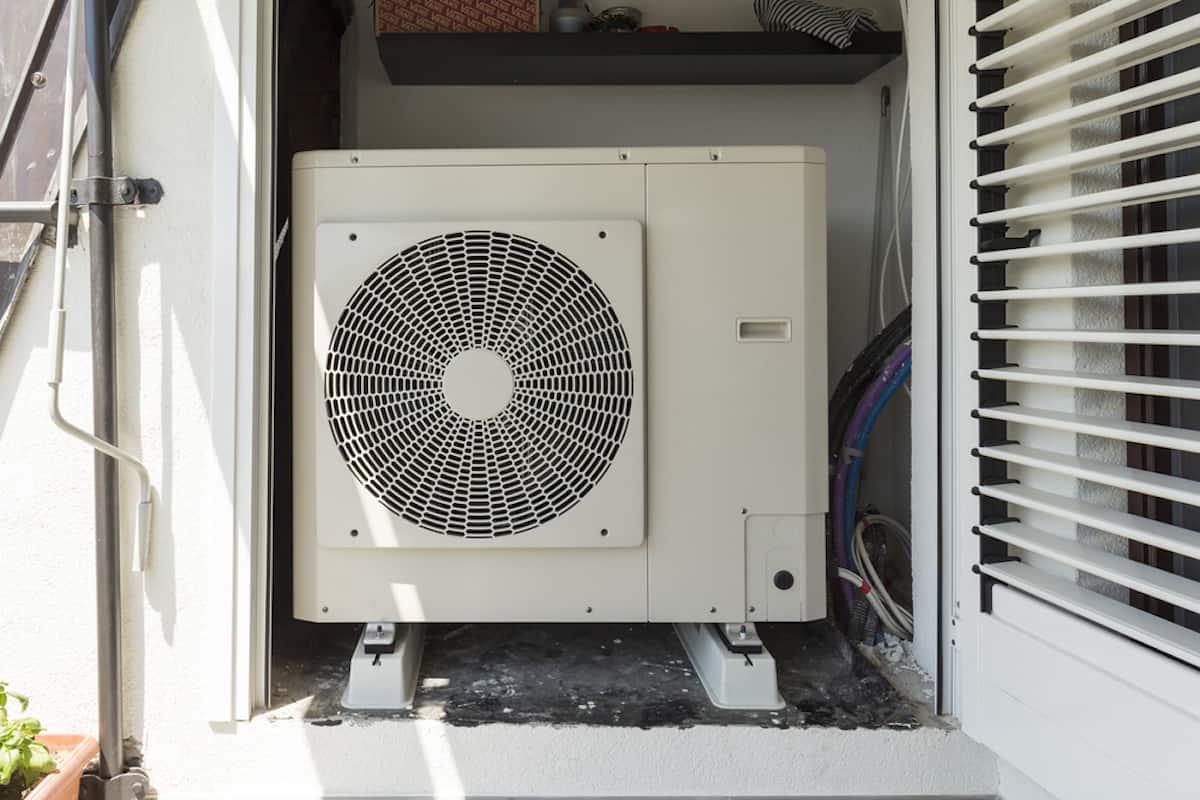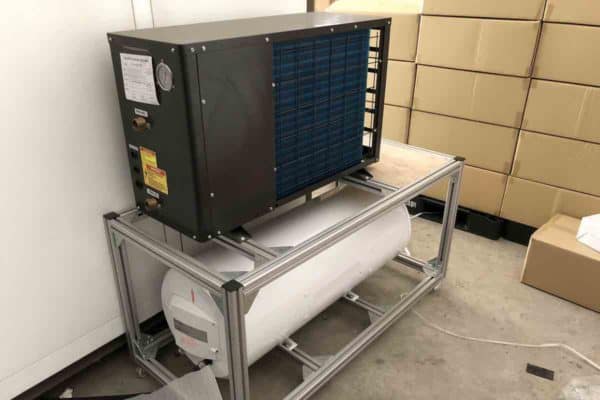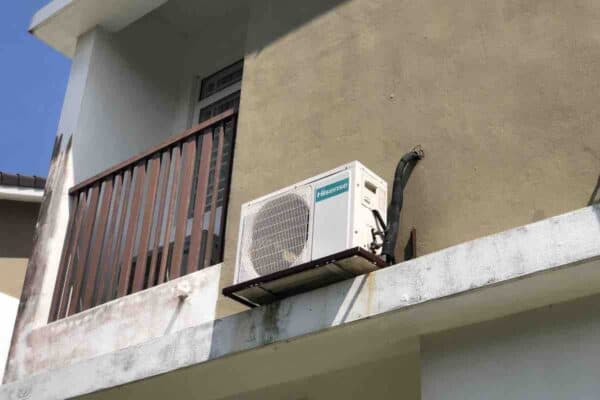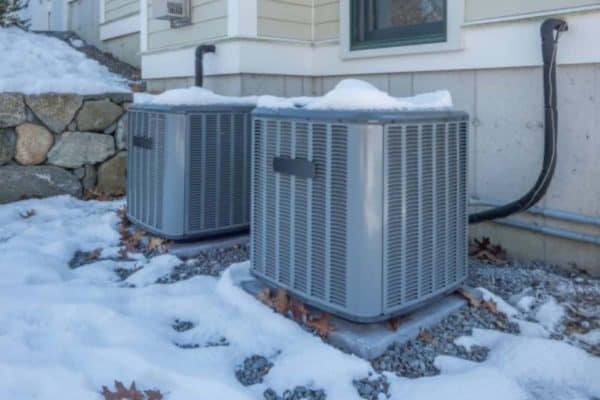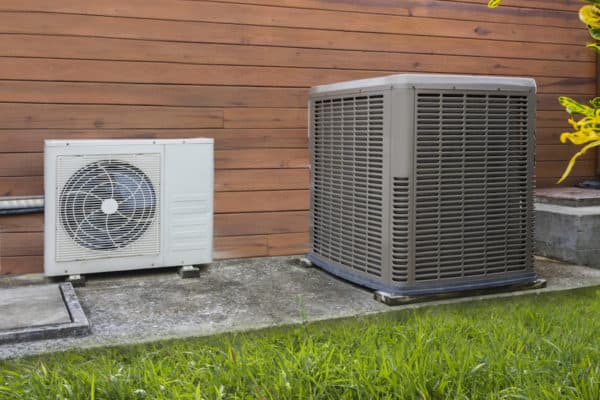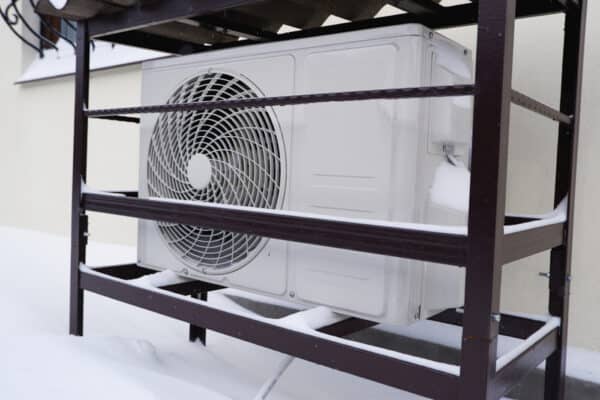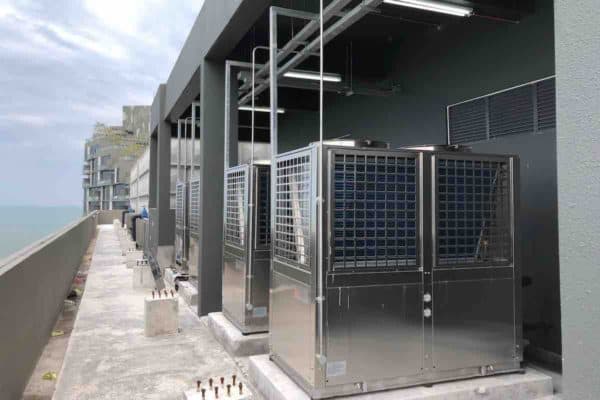Do Air Source Heat Pumps Heat Water?
Air source heat pumps are known to be efficient. However, some people are not familiar with air source heat pumps and thus, they wonder do air source heat pumps heat water? So, I decided to provide answers.
Air source heat pumps do heat water. Air source heat pumps harvest heat from the ambient air and heat the water repeatedly through multiple cycles until it reaches the desired hot water temperature.
Using an air source heat pump to heat water is quite different from a traditional water heater and boiler. So, it is important to understand how it actually works.
How Air Source Heat Pumps Heat Water?
Air source heat pumps that heat water are slightly different from those that do space heating. However, they all use the same principle to harvest heat from the ambient air which is the reversed refrigeration process.
Normally, air conditioners absorb the heat inside the house and reject it to the ambient air outside. But, if the process is reversed, they can absorb heat from the ambient air and put that heat into work.
Air conditioners that run in such a reversed process manner are known as heat pumps. Since heat is being harvested or sourced from the ambient air, hence the name air source heat pump is given.
When used to produce hot water, instead of taking in the air in the house, the air source heat pump takes in water. Then, it runs the water through its condenser multiple times until the water reaches the desired hot water temperature.
When using an air source heat pump to heat water, a hot water tank is needed not only to store hot water but also for the air source heat pump water heating process.
Below is a diagram showing how an air source heat pump produces hot water:
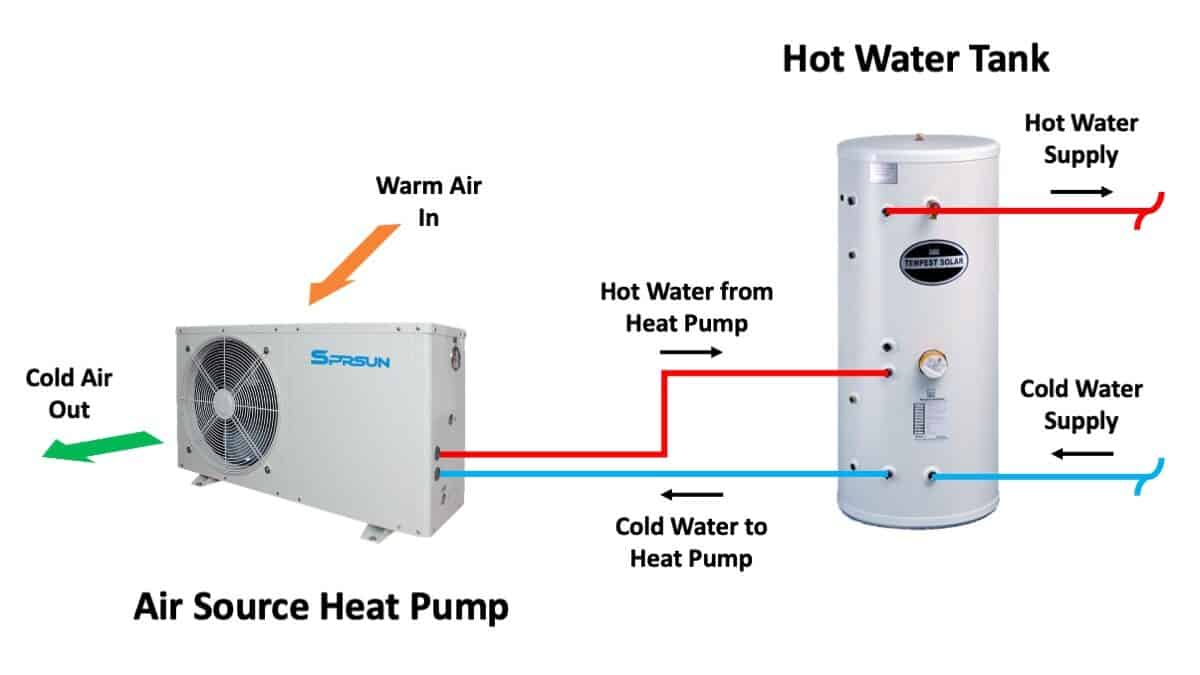
First, the normal house water goes into the hot water tank, filling it up. Then, a water pump, whichis usually built within the air source heat pump draws the cold water from the hot water tank into the air source heat pump.
Within the air source heat pump, the system harvests heat from the ambient air and heats the cold water.
The system uses the refrigeration process but in reverse to harvest heat from the ambient air. To learn how the air conditioner refrigeration process works in detail, see my post Air Conditioner Working Principle Simple Explanation with Diagram.
However, the air source heat pump does not heat the cold water instantly to 60°C which is the typical hot water storage temperature. Instead, it heats up the cold water at about 5°C each time the cold water passes through it.
After a few times of cycling through the air source heat pump, the cold eventually becomes hot water.
Once the air source heat pump senses the temperature of the hot water at 60°C, it’ll stop running until the hot water temperature drops to 55°C, then it’ll resume the heating process and the cycle repeats.
The temperature at which the air source heat pump starts and stops can be set, usually via a wired display controller. The air source heat pump senses the hot water temperature via a temperature sensor that is plugged into one of the ports on the hot water tank.
How Long Does an Air Source Heat Pump Takes to Heat Water?
How long an air source heat pump takes to heat water to a desired hot water temperature depends on several factors as follow:
- The higher the desired hot water temperature, the longer it takes.
- The lower the house’s cold water temperature, the longer it takes.
- The bigger the hot water tank (greater water volume), the longer it takes.
- The greater the air source heat pump water heating capacity, the faster it takes.
For instance, if you have a large hot water tank, it’ll take an air source heat pump longer to heat all of the water inside the tank to 60°C. Also, if the air source heat pump heating capacity is lower, it’ll take longer to heat up the water too.
Nonetheless, as a rule of thumb, 1 kW of air source heat pump water heating capacity produces 26 litres of hot water in an hour given that the cold and hot water temperatures are 27°C and 60°C respectively.
Assuming that an air source heat pump has a water heating capacity of 10 kW, it can produce 260 litres of hot water in an hour. So, if you have a 100-litre hot water tank, the air source heat pump needs 23 minutes to heat all of the water inside the tank from 27°C to 60°C.
Can You Run a Shower from an Air Source Heat Pump?
Air source heat pumps heat water and store the hot water inside hot water tanks. If the hot water storage temperature is sufficient, you can comfortably take a shower with the hot water that is produced by an air source heat pump.
However, air source heat pumps are not instantaneous water heaters. So, you need to turn it on an hour or so earlier before you take the shower to make sure that you’ll have sufficient hot water.
Do Air Source Heat Pumps Work in Winter?
Air source heat pumps harvest heat from the ambient air. So, if the ambient air temperature drops too much, for instance in winter, air source heat pumps may take longer to heat up the water to the desired hot water temperature.
Usually, the minimum ambient air temperature air source heat pumps can work is about -25°C. Beyond that, air source heat pumps may stop producing hot water entirely.
What are the Disadvantages of Air Source Heat Pumps?
Air source heat pumps are known to be efficient and thus, they are better for the environment compared to boilers and conventional water heaters. However, using an air source heat pump for hot water has a few drawbacks:
- Air source heat pumps take longer to produce hot water.
- Air source heat pumps are more expensive to purchase and install.
- Air source heat pumps are more complex and thus, more maintenance is needed.
- Air source heat pumps cannot produce hot water beyond 60°C.
Despite that, air source heat pumps are still great for water heating and hot water production as they only consume 1/3 of the electricity compared to conventional electric water heaters.
To learn more about air source heat pumps in general, see my post What is an Air Source Heat Pump?.
If you have anything to add (or ask) about this topic, leave a comment down below!


